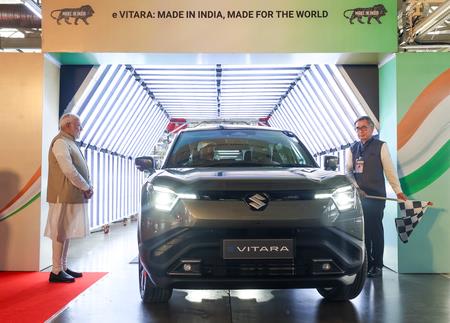PM E-DRIVE: Centre Rolls Out Rs 2,000 Crore Subsidy Scheme For EV Charging Stations
Government premises such as offices, hospitals, educational institutions and central public sector enterprises will receive 100 per cent subsidy on both upstream infrastructure and EV charging equipment, provided the chargers offer free public access, the guidelines state.
In the case of bus stations operated by state transport undertakings, metro stations, municipal parking lots, public sector ports and NHAI /state government controlled toll plazas and way-side amenities on highways and expressways, the subsidy will cover 80 per cent of upstream infrastructure and 70 per cent of EV supply equipment cost.
Locations like airports, railway stations, fuel retail outlets of state-run oil marketing companies like Indian Oil, Bharat Petroleum and Hindustan Petroleum, metro stations and bus depots will get 80 per cent subsidy on infrastructure and 70 per cent on charging equipment.
Battery swapping and charging stations are also covered, with 80 per cent subsidy support.
The scheme will give priority to urban centres with a population of over one million, smart cities, satellite towns connected to 7 metros (Delhi, Mumbai, Kolkata, Chennai, Hyderabad, Bengaluru and Ahmedabad), state capitals, and high-density national and state highways. Public transport hubs such as railway stations, airports, and fuel retail outlets have also been earmarked for receiving infrastructure support.
Public sector giant Bharat Heavy Electricals Ltd (BHEL) has been designated as the Project Implementation Agency, while IFCI will serve as the Project Management Agency. BHEL will also develop a National Unified Hub and mobile app to integrate EV chargers, offering discovery, real-time updates, slot booking and payment facilities.
Subsidy disbursement will be done in two stages - 70 per cent at the procurement stage and the remaining 30 per cent after commissioning and integration with the Unified Hub.
The guidelines have also finalised the charging standards which stipulate up to 12 kW for two- and three-wheelers, and 50 kW to 500 kW fast chargers for cars, buses and trucks.

Legal Disclaimer:
MENAFN provides the
information “as is” without warranty of any kind. We do not accept
any responsibility or liability for the accuracy, content, images,
videos, licenses, completeness, legality, or reliability of the information
contained in this article. If you have any complaints or copyright
issues related to this article, kindly contact the provider above.
Most popular stories
Market Research

- Seoul Exchange, One Of Only Two Licensed Platforms For Unlisted Securities, Will Exclusively Use Story To Settle Tokenized Rwas
- Phase 6 Reaches 50% Mark As Mutuum Finance (MUTM) Approaches Next Price Step
- 0G Labs Launches Aristotle Mainnet With Largest Day-One Ecosystem For Decentralized AI
- Solotto Launches As Solana's First-Ever Community-Powered On-Chain Lottery
- Kintsu Launches Shype On Hyperliquid
- Blockchainfx Raises $7.24M In Presale As First Multi-Asset Super App Connecting Crypto, Stocks, And Forex Goes Live In Beta





















Comments
No comment